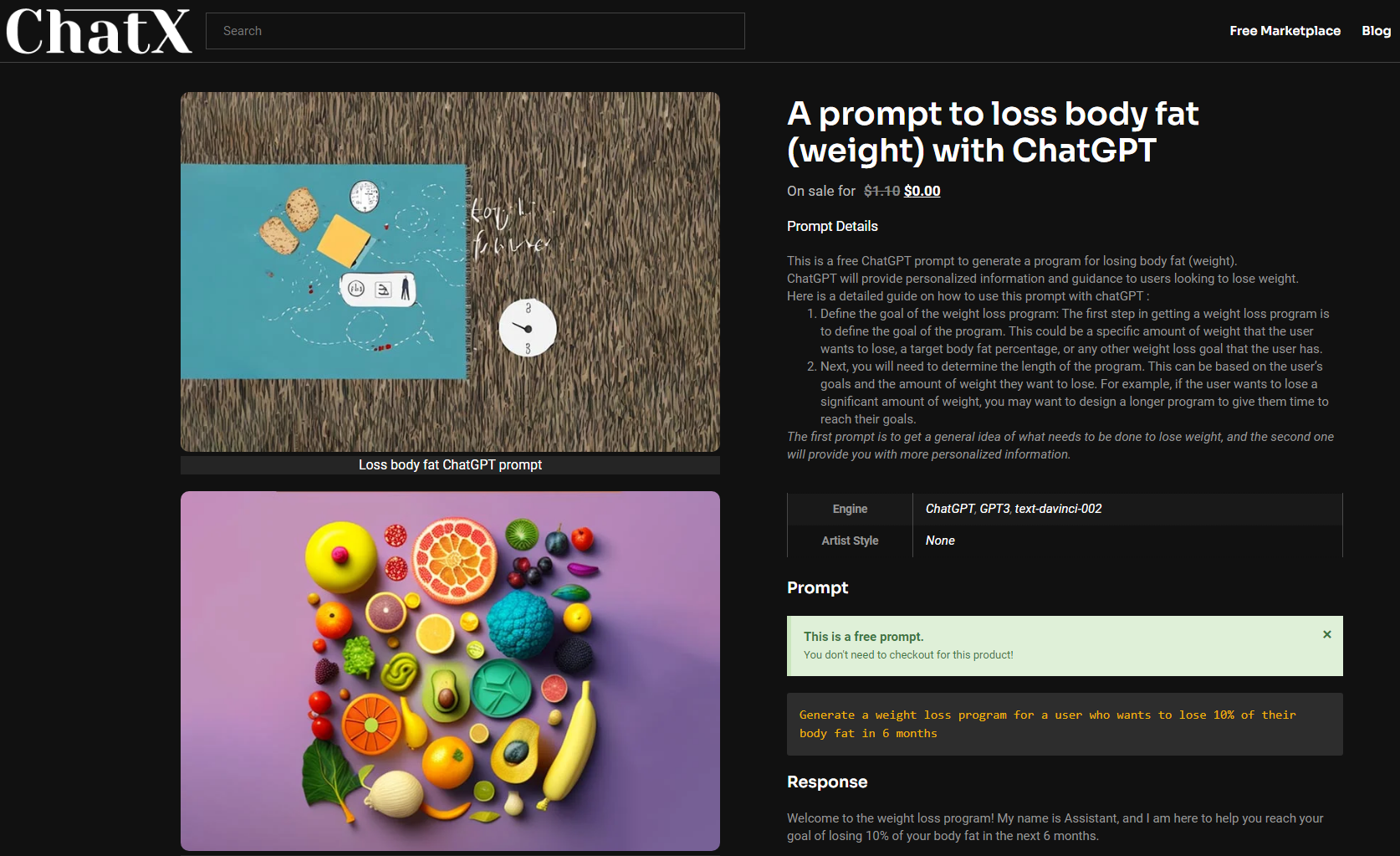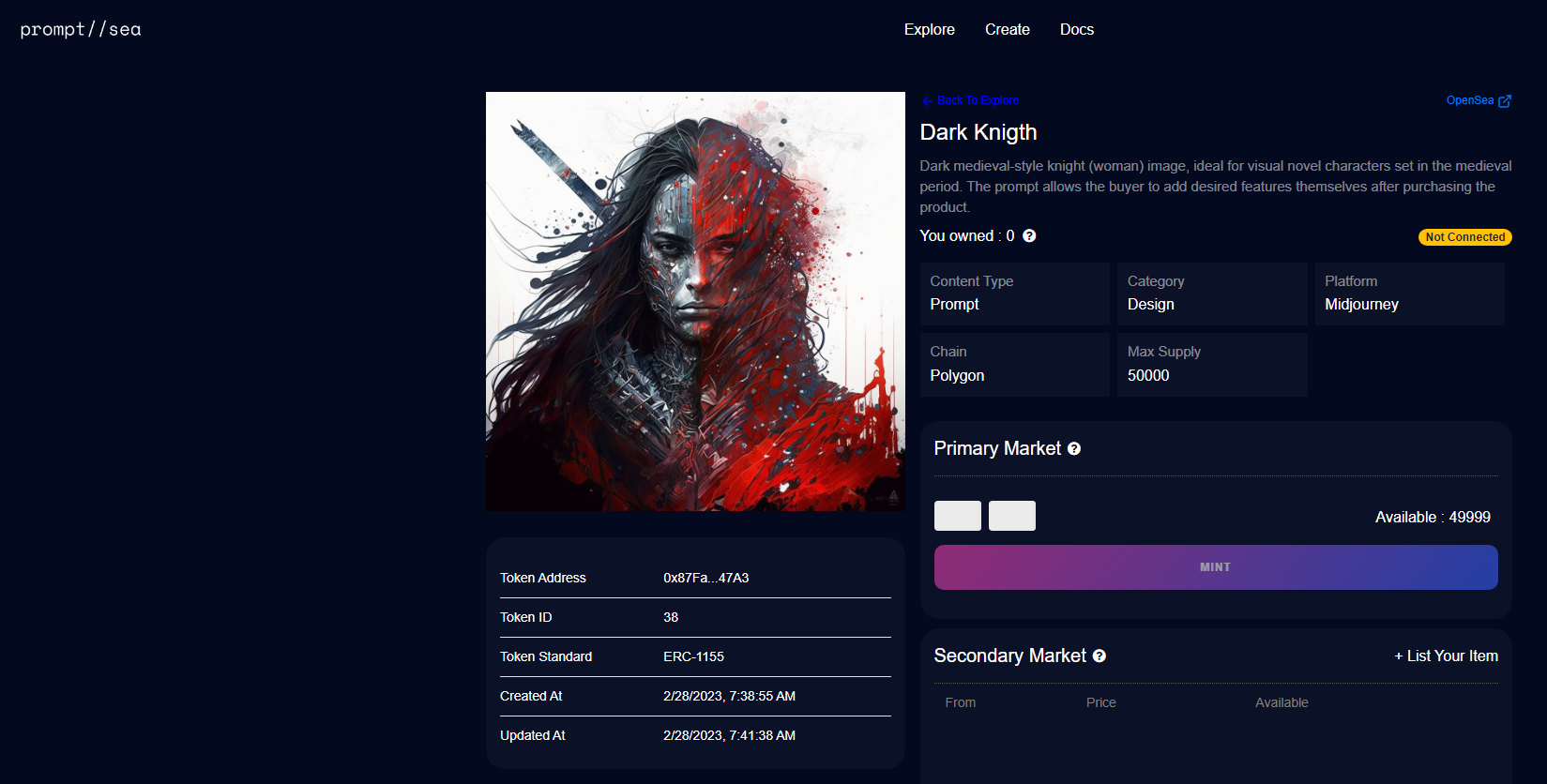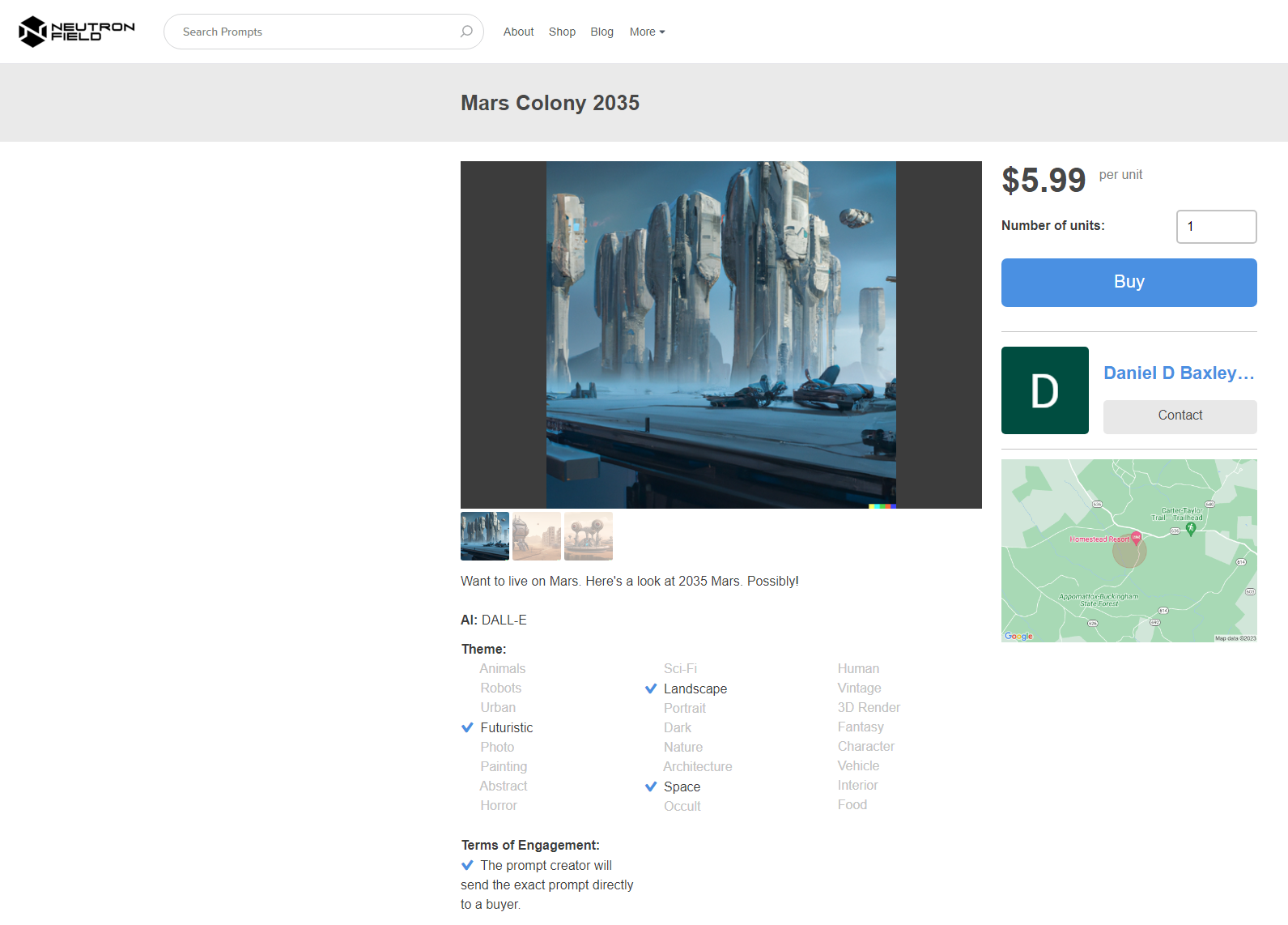Writing the text strings that instruct AI systems like ChatGPT and DALL-E 2 to generate essays, articles, images, and more has become a real profession, with salaries well into the six figures. Anyone can propose directions, of course. But only certain prompts (eg, “Create a watercolor of a soldier standing in the middle of a field, a la John Singer Sargent) accomplish very specific, desirable (or undesirable) things.
Fast typing requires skill and dedication, due to the black box and unpredictable nature of today's next-generation AI systems. To further complicate matters, systems frequently change and respond to malicious ads, bypassing the barriers their creators set up.
But not every company or developer has the budget to hire a so-called quick engineer. Fortunately, there is the GiG economy.
The markets of notices, or portals of E-commerce where users can buy, sell, or gift "designed" ads for various AI systems, are a growing industry. When we first profiled fast markets last July, there was only one major player. But since then, the landscape has expanded dramatically. Even a cursory Google search turns up a dozen or more fast markets, with new ones being added monthly.
ChatX for example, it offers ads tuned to ChatGPT, as well as popular imaging systems like DALL-E 2, Midjourney, and Stable Diffusion. NeutronField generates sales notices cover a slightly broader range of AI systems, including Disc Diffusion y crayon.
Many of the market traders, like NeutronField's Miroslav Kostic, have no background in AI or even data science. Hobbyists at first, they experimented with systems like Stable Diffusion but ran into obstacles in unlocking their full potential.

Image credits: ChatX
“I've been playing around with AI text-to-image models since Disco Diffusion first came out in September 2021,” Kostic said. “I spent countless hours trying to bring to life ideas that had been in my head for years: dystopian sci-fi landscapes and otherworldly spacescapes. However, I quickly realized that creating coherent images using only words was a challenge.”
Kostic largely runs NeutronField alone, personally reviewing each request submitted by sellers to ensure they comply with the marketplace's content policy. (NeutronField does not allow ads that could be used to generate deep fakes of celebrities, depictions of graphic violence, or clones of copyrighted characters.)
For his part, Shahir Salehi, the founder of ChatX and a front-end designer with degrees in computer science and art, felt that "the time was right" to launch a competitive marketplace for fast sharing.
“There was growing interest in the industry and a need for a more efficient and accessible way to immediately connect with engineers and users of generative AI,” Salehi said by email. “As systems improve Artificial Intelligence, they can automate more processes or tasks that previously required human power, make sense of data on a scale no human could, and offer streamlined, automated ways for workers to complete mundane, manual tasks. This means that the demand for ads that can take advantage of these capabilities may also increase.
Some market founders came from completely different industries, no doubt looking to cash in on the generative AI craze. Pisuth Daengthongdee, who started PromptSea He originally hoped to create an NFT marketplace, but was deterred by the sheer amount of competition.
“The large user base of AI imagers like Midjourney, DALL-E and later ChatGPT in December, with more than a million users it was an important factor in our change,” said Daengthongdee.

Image credits: PromptSea
The amazing thing about the fast markets out there is that few, if any, follow the same playbook. It's uncharted territory, fast selling and buying, and each platform approaches it from entirely different directions.
For example, PromptSea "tokenizes" requests on a blockchain, creating an immutable record of each request's creation, trade, and sale. There is a downside in that prompts in PromptSea have to be "minted” before they can be sold, a process that is neither instant nor free. But the benefit is that prompts originated by PromptSea have a traceable public trail, Daengthongdee says, making it easier to determine their rightful owner, and for that owner to get a cut of resales.
“What we can do is monitor new indications and remove suspicious ones from the website. This is similar to what other NFT marketplaces do,” Daengthongdee said. Like ChatX, PromptSea, which also sells AI-generated stories and artwork, moderates prompts that don't meet its quality and content guidelines. “In the long term, we will allow network moderators to review new prompts and receive incentives for their efforts,” added Daengthongdee.
NeutronField is differentiated by its focus on “high quality” text-to-image prompts, plus a store physical items such as clothing, backpacks and laptop sleeves, says Kostic. As for ChatX, it follows a more conventional model, selling curated collections of ads, Salehi explained.
ChatX pays ad creators $39 (in Canadian dollars) for each ad that successfully passes the platform's moderation queue. Directions in ChatX are free at the moment; ChatX only charges buyers for personalized messages, which are $39 (again, Canadian dollars).
Salehi says that he plans to implement a fee-based structure in the future. NeutronField is already charging commission. So does PromptSea, which charges a 10% fee on each transaction.
“I think the fast market is seen as part of the AI-assisted content creation that will disrupt the global creative market,” Daengthongdee said. “In the long run, AI will be used as a software tool for creators, just like Photoshop or Blender, helping individuals or studios produce creative work at lower cost.”
Those are bold predictions, but it's still early days for fast markets. They are basic compared to the eBay, Alibaba and Amazon of the world in terms of functionality, lacking rating and review tools and ways to personalize and personalize prompts for sale. They are also small operations with relatively few prompts to choose from; Perhaps tellingly, none of the founders discussed offered revenue or usage statistics.

Image credits: NeutronField
The growth could come as generative AI continues to attract attention. However, one wonders how well these early companies will overcome the many challenges that lie ahead.
For example, moderation. It's relatively easy when it comes to a small market. But with scale, it gets more difficult, especially once the bad actors get into the game. It's not hard to imagine, for example, a small army of marketers trying to flood a platform like ChatX with requests for nude deepfakes. Those directions may never make it to the market, but they would clog up the moderation queue to such an extent that legitimate directions creators could be affected.
Partially motivated by this concern, Chatx is manually approving sellers right now and says it's developing a system to allow users to report "problematic" ads that might go undetected. PromptSea and NeutronField have no such restriction, so far.
There is also the issue of copyright. Can it encourage creators to copyright their work, and if so, could it lead to situations where sellers infringe the rights of creators/owners by copying and then selling their work? Other than manual moderation, ChatX and NeutronField have no plans to prevent this. PromptSea believes that its blockchain-based approach will solve the provenance problem, but it is an unproven theory.
If there is one thing that is certain, it is that fast markets are not going away anytime soon. They will evolve and change with the AI systems they are designed for, growing in fits and starts and bound to encounter bumps along the way.
However, Kostic in particular did not appear to be deterred.
“As AI platforms improve and new ones emerge, fast marketplaces need to keep up with the times and adapt accordingly,” Kostic said. “Ad marketplaces must commit to keeping abreast of the latest AI developments and ensuring that users can access the best ads.”




